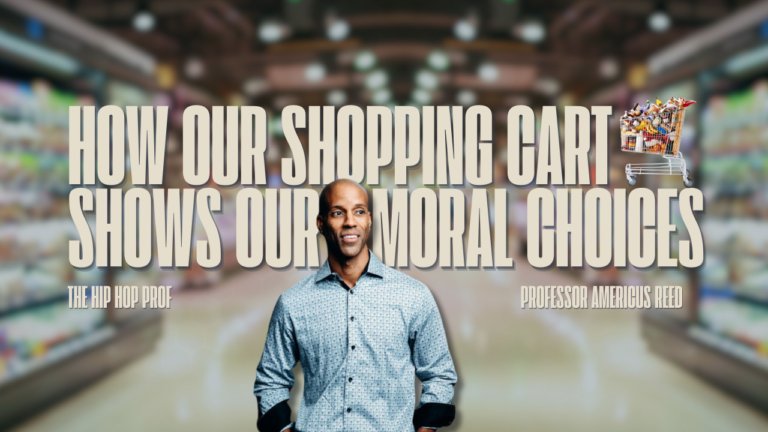Intro
Every time you toss a product into your shopping cart, you might be revealing more about your moral values than you realize. From choosing eco-friendly items to deciding between saving money or supporting ethical practices, your everyday shopping decisions offer a glimpse into the values you hold dear. The choices we make at the checkout aren’t just about fulfilling needs—they’re about showcasing our personal ethics and beliefs. Think of shopping as picking ingredients for the recipe of our society. Let’s explore how these choices reflect our values using Moral Foundations Theory, and how they connect to deeper aspects like fairness, care, and even liberty.
Understanding Moral Foundations Theory
Moral Foundations Theory (MFT) is a framework that helps us understand how our values influence our decisions. It revolves around six pillars: care/harm, fairness/cheating, loyalty/betrayal, authority/subversion, purity/degradation, and liberty/oppression. Research suggests that a person’s moral identity can guide how these pillars affect their consumer behavior, making MFT a powerful tool for understanding why we shop the way we do because moral identity often mediates how the six pillars influence our purchasing decisions.
Each pillar addresses a unique moral aspect influencing our choices.
- Care/harm: Promotes kindness and compassion, aiming to reduce suffering.
- Fairness/cheating: Advocates for justice and equality, often leading us to favor fair trade and ethical labor.
- Loyalty/betrayal: Encourages purchases from brands that align with community or national values.
- Authority/subversion: Drives preferences for products respecting tradition and authority.
- Purity/degradation: Influences desires for items maintaining cleanliness and moral standards.
- Liberty/oppression: Highlights the pursuit of autonomy, steering us away from restrictive or unjust brands.
Understanding MFT can reveal the moral motivations behind our purchases, allowing us to see the bigger picture of how our shopping habits reflect our personal values and ethical beliefs.
Choosing Eco-Friendly vs. Conventional Products
Picture yourself standing in the aisle, debating whether to buy a regular cleaning product or its eco-friendly counterpart. This choice is more than just about which one cleans better; it reflects your values concerning the environment and sustainability. Opting for eco-friendly products often mirrors a commitment to the care/harm pillar of Moral Foundations Theory, where you prioritize the well-being of our planet. It’s a decision that underscores your desire to reduce harm and promote care for future generations.
However, these decisions aren’t always straightforward. Perhaps the eco-friendly option is a bit pricier, making you pause to consider your budget. Here, the concept of ‘competing selves’ comes into play. You might weigh the immediate financial benefits of the cheaper product against the long-term ethical impact of choosing the greener alternative. This internal tug-of-war reveals the complexity of our values and how they influence our shopping habits. It’s not just about the product in your hand; it’s about what that choice says about your commitment to sustainability and ethical consumerism. Your shopping cart becomes a reflection of your moral choices, highlighting the importance of each decision you make.
How Fairness and Care Influence Consumer Behavior
Consider your last coffee purchase. Did you go for the cheapest option, or did you choose a fair-trade brand? If you picked fair-trade coffee, you’re actively engaging with the moral foundation of fairness. By doing so, you’re recognizing and rewarding the efforts of workers who are treated equitably, supporting practices that uphold justice. Individuals with a strong moral identity tend to see the world through the lenses of care/harm and fairness/cheating, making such choices more natural.
These decisions go beyond personal benefit—they reflect a broader commitment to ethical principles. Think about buying cruelty-free cosmetics. This isn’t just a superficial choice; it’s an expression of your commitment to the care/harm pillar, showing your desire to prevent suffering and promote kindness. When you opt for products that align with these values, you’re not just making a purchase; you’re making a statement about what matters to you.
Even when faced with budget constraints, these moral choices often emerge. The moral foundations of fairness and care influence our buying habits, driving us towards products that mirror our deeper values. By being aware of these influences, we can make more informed, thoughtful decisions that resonate with our ethical beliefs.
Emotional Triggers and Moral Shopping Decisions
Our emotions heavily influence our shopping choices, especially when they intersect with our moral values. For instance, moral elevation—the uplifting sensation we feel when witnessing acts of kindness—can significantly strengthen our moral identity. This positive emotional experience can make us more inclined to make ethical choices in the future. This emotional response can increase the likelihood of making moral choices in the future, suggesting a two-way relationship between our emotions and moral identity.
Consider how feelings of empathy might steer you towards cruelty-free products. Seeing images of mistreated animals or learning about unethical practices can evoke a strong emotional response, making you more likely to support brands that prioritize animal welfare. Similarly, feeling gratitude for the earth’s resources can drive you to choose eco-friendly options, even if they cost a bit more. These emotional triggers often highlight the pillars of care/harm and fairness/cheating in Moral Foundations Theory.
Fear and disgust can also play a role. For example, concerns about purity and cleanliness might lead you to purchase organic foods or natural cleaning products. The thought of consuming harmful chemicals can evoke feelings of disgust, pushing you towards choices that you perceive as purer and safer.
In each case, our emotional reactions don’t just reflect spontaneous feelings—they connect deeply to our moral frameworks. By recognizing these emotional triggers, we can better understand the motivations behind our shopping decisions and how they align with our broader moral and ethical values.
Encouraging Thoughtful Consumer Choices
The next time you’re about to make a purchase, take a moment to reflect on what your choice says about your values. Are you opting for the cheapest item, or are you choosing a product that aligns with your beliefs in fairness, care, or environmental sustainability? Your shopping habits can be powerful expressions of your moral identity, shaping not only your personal life but also influencing broader societal norms.
Consider how your decisions impact others and the planet. For example, buying fair-trade products supports ethical labor practices, while choosing eco-friendly items helps protect the environment. By making these conscious choices, you’re contributing to a more just and sustainable world.
Think about the concept of ‘competing selves’—the internal struggle between immediate convenience and long-term ethical commitments. When faced with this dilemma, ask yourself: What kind of world do I want to help create? Making thoughtful consumer choices often means prioritizing your long-term values over short-term gains.
Your shopping cart is more than just a collection of items; it’s a reflection of your ethical beliefs. By being mindful of the moral implications of your purchases, you can make a positive impact. Engage in ethical shopping practices and support brands that align with your values. Your actions can inspire change, encouraging others to consider their consumer values and make more informed, thoughtful decisions. Let’s strive to be conscious consumers, making choices that reflect our commitment to a better world.






